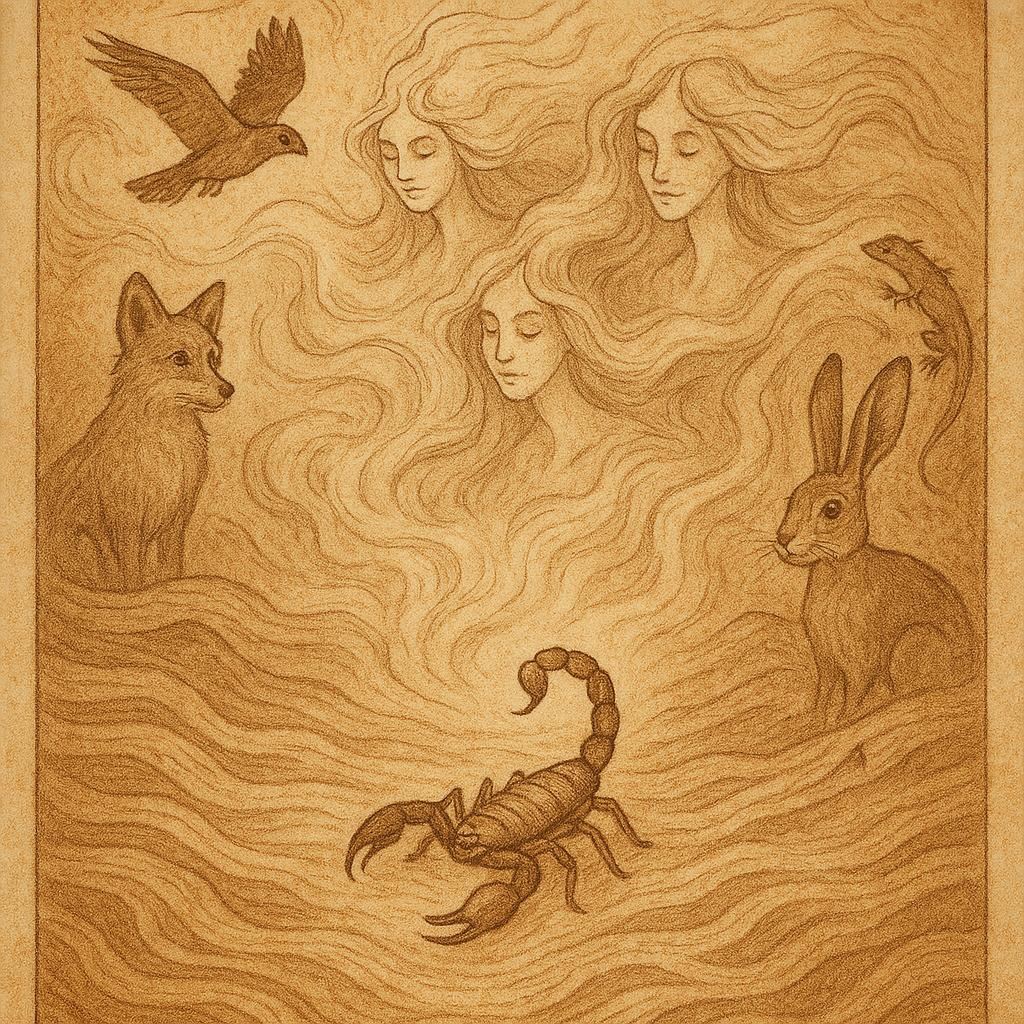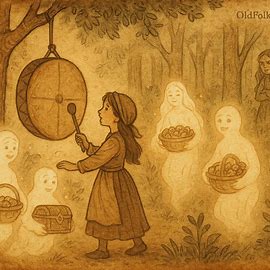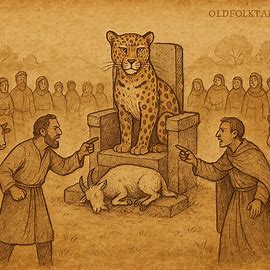In the vast deserts of Mauritania, where golden sands stretched endlessly under the burning sun and the winds carried ancient whispers, lived a small scorpion with a big reputation. Though tiny in size, this scorpion was feared and admired for its cunning ways. It delighted in playing mischief, stealing food from lizards, tricking birds with false tracks, and digging tunnels to confuse other creatures. Many animals avoided its path, for they knew the scorpion’s stinger was not its sharpest weapon. Its cleverness, twisted by pride, was what truly made it dangerous.
Yet cleverness without respect often leads one into trouble. One evening, as the sun sank behind the dunes and the desert cooled under the first touch of night, the scorpion wandered farther than it ever had before. It crept into a sacred part of the desert, a place where even the fiercest beasts walked with care. Hidden deep within the shifting sands lay a spring, guarded by the spirits of the desert. The waters of this spring did not dry, even in the hottest season, and its cool surface reflected the moon like polished silver. It was a place of life, meant for all creatures who approached with humility.
READ THIS:The Whispering Sand Dunes
The scorpion, however, was blinded by pride. It believed that no being, not even the spirits of the desert, could resist its tricks. When it reached the spring, it chuckled softly and said, “This water shall be mine alone. I will drink as I please and guard it for myself.” As it lowered its claws to the surface, a voice rose from the sands. It was soft yet firm, like the rustle of wind through dry grass. “Little scorpion, this water is sacred. You must show respect or suffer the consequences.”
The scorpion laughed with arrogance. “I am smarter than all creatures,” it declared. “Why should I obey unseen voices?” It dipped its claws into the water, but before it could drink, the sand beneath its feet began to tremble. In an instant, the spring vanished, swallowed by the desert itself. The scorpion staggered back, shocked.
Determined not to be defeated, it tried new tricks. It dug tunnels around the spring’s place, hoping to trap animals and frighten them away. The spirits shifted the dunes, filling the holes with sand before any harm could be done. The scorpion laid false tracks to confuse thirsty birds, but the spirits guided them to hidden wells. It even tried to charm the spirits themselves with flattering words, hissing sweet phrases into the night air. But the desert spirits were not deceived. They moved the winds and shifted the stars, undoing every deceit.
Days passed, and the scorpion grew weary. Its tricks, once so clever, now seemed useless in the face of the desert’s patience. Finally, one night, as the moon shone full above the sands, the scorpion found itself trapped in a circle of shifting dunes. The sands rose high like walls, closing in from every side. For the first time, the scorpion felt fear. Its arrogance melted away, and in the silence it whispered, “I have been foolish. I thought cleverness alone made me powerful, but I have only brought trouble upon myself. Great spirits, forgive me. Teach me how to live with respect.”
The desert fell quiet. Slowly, the winds calmed, and the dunes lowered their walls. The circle of sand opened, and the scorpion was free. At that moment, it understood a lesson it had never cared to learn before. Intelligence was a gift, but without humility and honesty it was nothing but an empty shell.
From that day forward, the scorpion changed its ways. It no longer used its tricks to harm or deceive. Instead, it used its clever mind to help the desert creatures. When birds grew thirsty, it guided them to hidden springs. When small animals faced danger, it showed them safe tunnels and cool shelters. During times of drought, the scorpion worked tirelessly, helping to find scarce drops of water.
Soon, the animals of the desert noticed the change. They no longer avoided the scorpion with fear. Instead, they came to respect its cleverness, not as a tool of trickery but as a gift of wisdom. The scorpion became a guardian of the desert, using its skills to protect balance rather than disturb it.
The tale of the Trickster Scorpion and the Desert Spirits spread across Mauritania. Parents told it to their children, and travelers carried it across the sands. The story reminded everyone that cleverness alone is not enough. Intelligence must be guided by honesty, respect, and care for the world around us. Only then does wisdom take root, and only then can a person or even a tiny creature like a scorpion earn the trust of others.
Moral Lesson: The Trickster Scorpion and the Desert Spirits teaches that cleverness without respect leads to failure. True wisdom is born when intelligence is combined with humility, honesty, and care for the natural world.
Knowledge Check
Who is the main character in the story and what was its behavior? The main character is a scorpion, known for its mischief and trickery.
What did the scorpion try to do in the sacred desert? It tried to take the water of a hidden spring for itself and deceive others.
How did the desert spirits respond to the scorpion’s tricks? They shifted the sands, moved the winds, and protected the creatures from harm.
What made the scorpion realize its mistake? It became trapped in a circle of shifting dunes and felt fear and humility.
How did the scorpion change after learning its lesson? It began using its cleverness to help others, finding water, solving problems, and protecting balance in the desert.
What is the moral of the story? True intelligence is not in deceit but in respect, honesty, and care for the community and nature.
Cultural Origin: Source: Sahrawi folktale, Mauritania. Collected in Mauritanian Oral Folklore by Abdallahi Ould Cheikh (1990).






